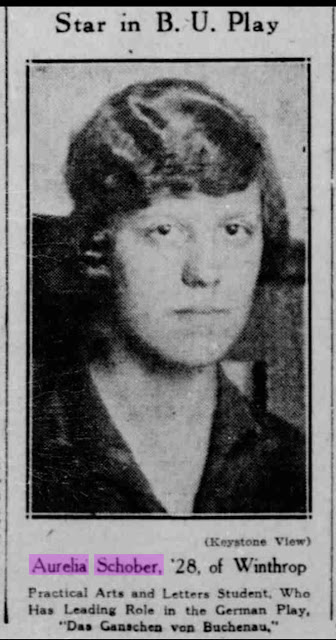On 9 January 1953
Sylvia Plath, her leg in a cast, wrote from Smith College to her mother that she
was less depressed after persuading the college to let her audit the science courses she so dreaded that she had talked suicide. Meanwhile, in a nation
battered by the Red Scare and war in Korea and the new hydrogen bomb, with
Eisenhower’s inauguration days away, Sylvia’s mother Aurelia Plath, Boston
University professor, scribbled on the envelope’s verso:
subjects questions for political discussion group
1. religion
2. Are sororities and fraternities democratic.
3. Is liberal education desirable for everybody.
4. college education open to all / should a college
education be public as one will be to high school students?
5. heredity or environment
6. are students taking advantage of the opportunities around
them.
7. what will be religion’s should place [sic] in the
modern world.
8. is there a course or lessons needed for college education
work.
9. communism and how it affects us.
10. current events
11. the American negro [1]
Because “religion” and “sororities and fraternities” top the
list, the political discussion group was for college students, possibly fellow
Unitarian congregants or at Boston University where Aurelia taught. “The
American negro” as a topic implies all group members would be white. A subject “1”
on the list implies that the group had not yet formed or met.
Was this group Aurelia’s own brainstorm, or are these notes,
written in Gregg shorthand, from a planning meeting? Regardless, the list opens
a window onto Aurelia Plath’s politics.
Most discussion items center on Aurelia’s areas
of expertise: religion, education, college life. Topics 2 through 8 are formulated
as questions, most with her own answers implicit -- yet open for discussion. Topics 9 through 11, nationwide
and nonspecific, conclude the list because they were either too explosive for initial group discussions or rearmost in Aurelia's awareness. Yet the
plan to start the group is activist. And the agenda does not sound prescriptive.
Biographers assume that Aurelia voted for Eisenhower in 1952
because Sylvia supposed her mother had, but that’s not proof, and "Republican" back then didn't mean the insanity it means now. Aurelia wrote in Letters
Home that her Austrian-born parents “believed [in] every word their idol,
Theodore Roosevelt, ever wrote or uttered" and voted Republican ever after. Why? Possibly because Roosevelt was “the only candidate in
whose veins flows German blood, who has received part of his education in
Germany,” said the German-American Roosevelt League. [2] Otto Plath and his first wife Lydia registered to vote as Progressives in 1912 when Roosevelt's Progressive party ran him for re-election on a very liberal platform.
Aurelia's political discussion group never met. A crisis erupted in Aurelia’s household: Her mother was diagnosed with gastric cancer. Aurelia took summer 1953 off from
teaching to care for her mother, and Sylvia, disheartened by a month as a
guest editor in New York City, chose to spend July and August at home and
became suicidally depressed.
[1.] Sylvia Plath to Aurelia Plath, 9 January 1953, Lilly
Library.
[2.] Gable, J. The Bull Moose Years, Kennikat, 1978. When Roosevelt was 15 his parents sent him and two siblings to Dresden, Germany for five months, to learn German. Roosevelt did not become fluent.







